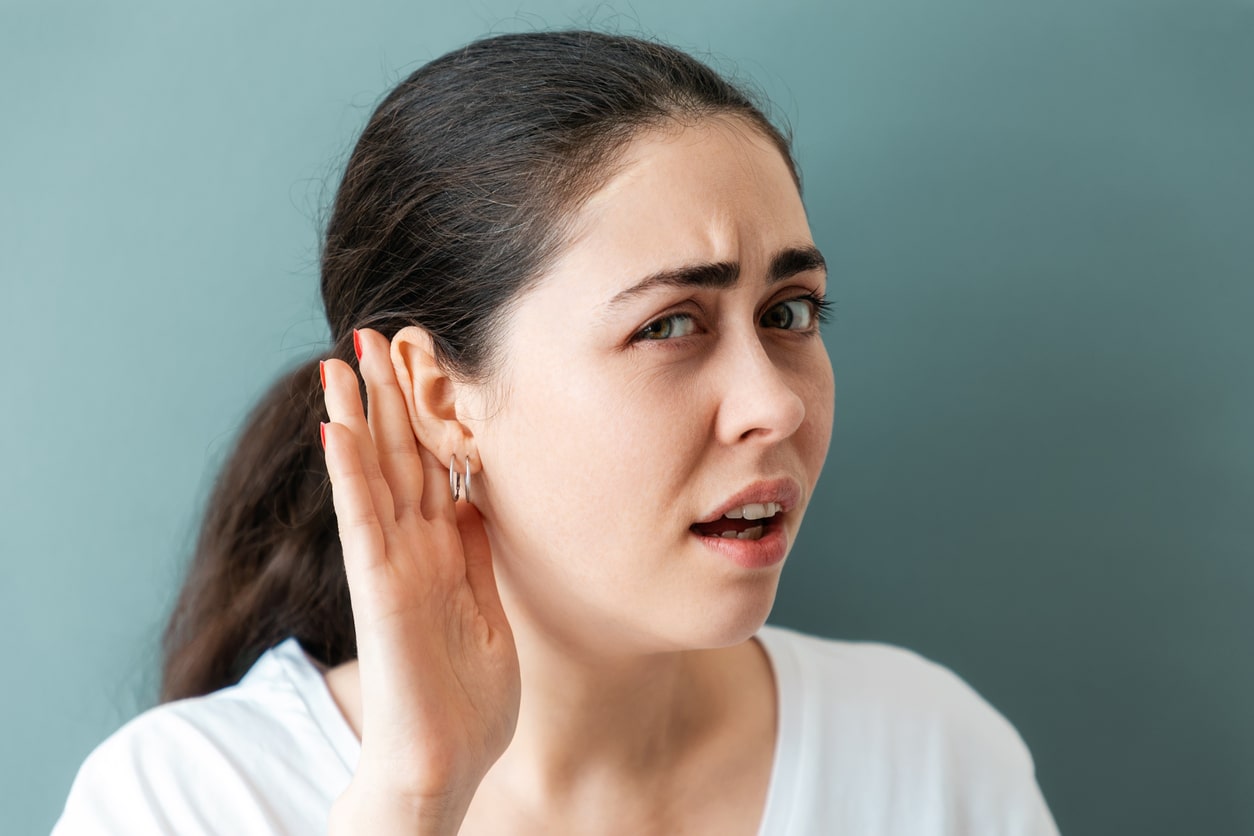If you have ever left a loud concert at The Mercury Ballroom to find that noises feel too quiet, you have likely experienced a temporary threshold shift. With a temporary threshold shift, sounds may sound muffled, and you may have a feeling of fullness or hear a slight ringing in your ears, known as tinnitus.
Let’s take a look at how hearing works, what causes a temporary threshold shift and what you can do to protect your hearing in the future.
How Does Hearing Work?

When we hear noise, like music or speech, the sound waves travel through the outer ear, ear canal and eardrum. The sound vibrates the eardrum. Vibrations in the eardrum travel through and are amplified by the three bones of the middle ear: the stapes, incus and malleus. The amplified vibrations travel through the fluid inside the cochlea, causing tiny hair cells to move. The moving hair cells create an electrical signal and send it to the brain’s auditory center. The brain then interprets the signals as sound.
While sound waves travel through what seems like a great distance, you will experience an almost instantaneous perception of sound.
What Causes a Temporary Threshold Shift?
Temporary and permanent threshold shifts represent the most common side effects of loud noise exposure. Loud noise causes temporary hearing loss by bending the small hair cells responsible for sound perception.
With a temporary threshold shift, your hearing will likely return to normal within a short time. Depending on the amount of damage, that short time could be anywhere between a few hours and a few weeks.
Even though the threshold shift may be temporary, hearing loss of any kind should be protected against it to prevent lasting damage.
Tips for Protecting Against Hearing Loss
Sound volume is measured in decibels (dB). The Centers for Disease Control (CDC) defines the threshold for hearing damage as any noise above 70 dB for a prolonged period or over 120 dB immediately. When you are exposed to noise over the recommended decibel limits for hearing loss, follow these five CDC-recommended tips to protect your hearing:
- Turn down the volume of the noise.
- Move away from the noise.
- Take breaks from the noise. A good rule of thumb to follow is if it feels too loud or irritating, move away from it to give your ears a break.
- Avoid frequenting lousy or noisy activities and places.
- Wear hearing protection. You cannot always avoid loud noise exposure, when this is the case, hearing protection can help dampen the force with which noise hits your ears.
In addition to protecting your hearing, regular hearing tests are an excellent way to safeguard your ear health. To learn more about hearing protection, contact Heuser Hearing Institute today to make an appointment with one of our specialists.